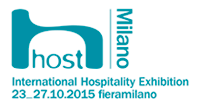The success in terms of ratings of the recent Report television program on coffee and the debate that it stirred up has most certainly made for an important contribution.”
“The common denominator in all of these trends can be summed up in one word: sustainability – explains Cosimo Libardo, president of SCAE and sales & marketing director for Nuova Simonelli – which doesn’t just mean environmental sustainability, but also adopting a lifestyle and a model of consumption that doesn’t bring overall negative consequences in the mid-to-long term, even from an economic and market point of view.
On one hand, even if all of the experts aren’t in agreement, it is said that the production of coffee will continue to decrease because of climatic changes, especially due to the increase in average temperatures. On the other hand, coffee consumption is growing all over the world, especially in Asia.
Abroad, coffee consumption is taking on more characteristics of being an “experience” and offering status, and there’s an international community of baristas that is ever more dedicated and cosmopolitan. In Italy, however, espresso coffee and related products, such as cappuccino, continue to be seen as everyday products for immediate consumption, and therefore, consumers expect prices to be low. Limited margins leave less room for investment.
Furthermore, small coffee bars don’t have access to advanced (and expensive) marketing tools, which the big international chains have in order to precisely profile various customer target markets and to develop custom products that meet the evolving needs of each one.
This is why education plays a very important role, and this doesn’t just mean simple training. It means an entire across-the-board growth path. At SCAE we are working very hard in this direction. We have created consistent, systematic training courses with exams and certifications that guarantee rigor and accuracy.”
Source: Host 2015


















